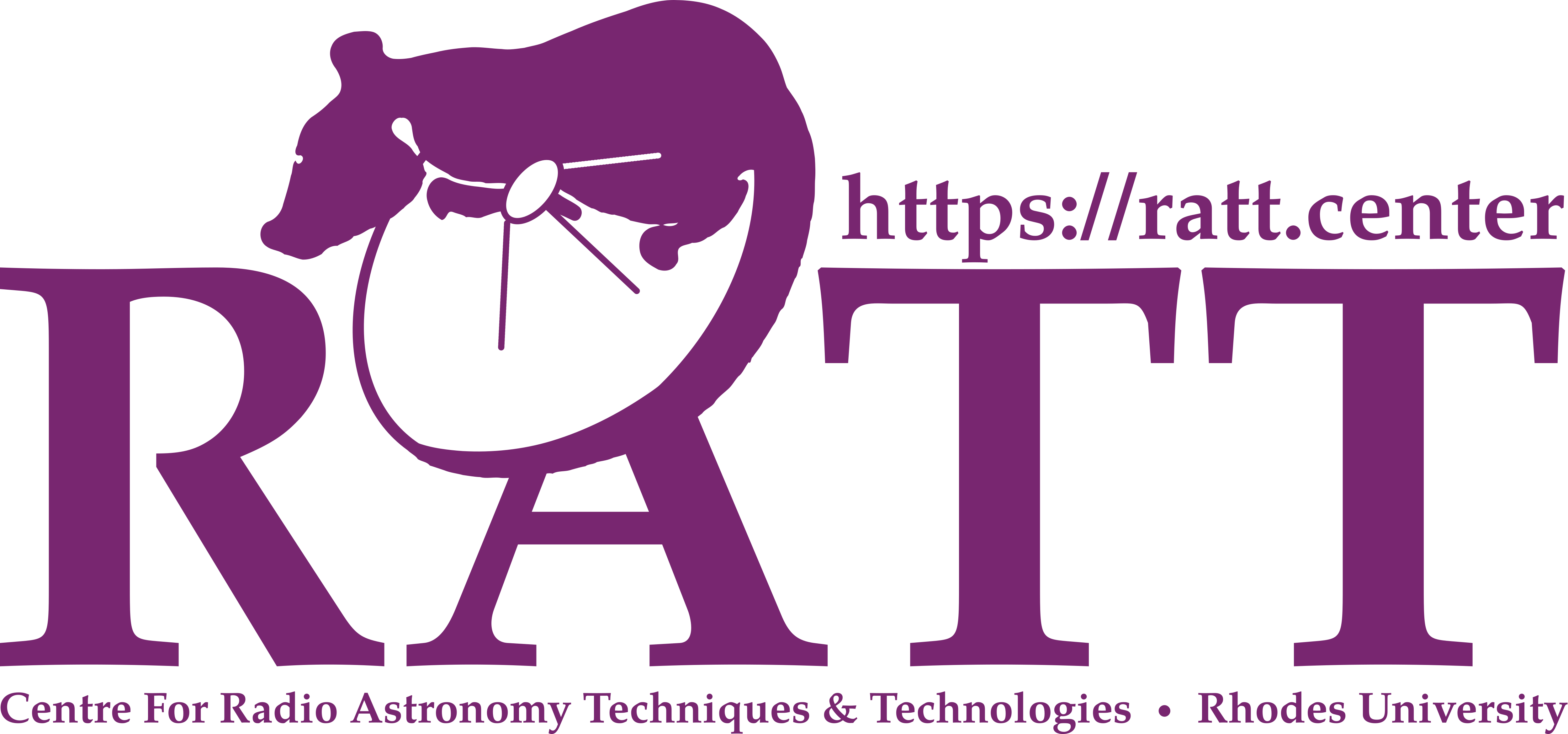Closing date for applications: 17 July 2021 (MSc/PhD) / 15 August 2021 (Hons)
Rhodes University has established the Centre for Radio Astronomy Techniques and Technologies (http://www.ratt-ru.org), based around the SKA Research Chair in RATT, with the aim of furthering research into data processing algorithms, novel calibration & imaging techniques, and innovative observational methods. We have extensive collaborations with leading international radio astronomy groups, we are closely involved with South African Radio Astronomy Observatory (SARAO) and the MeerKAT, C-BASS, HERA and (future) HIRAX telescopes in the Karoo, and we expect to play a large role in the development of the Square Kilometre Array. Our activities range from observational radio astronomy programs with MeerKAT and other telescopes, to algorithm design, software implementation, development of mathematical methods and frameworks for use in radio astronomy, and processing of observational data from existing radio telescopes. We have research projects of various scope and level available to suit students with a variety of aptitudes, from low-level software and algorithm work, to high-level mathematics and physics. Applicants should have a strong academic record in one or preferably more of the following subjects: astronomy, computing science, mathematics and/or applied mathematics, physics, statistics, signal processing.
Please see http://www.ratt-ru.org/research-areas.html for more information on potential research areas and projects. Note that we are also offering a number of projects via the SARAO bursary call:
- https://www.sarao.ac.za/approved-masters-research-projects-for-2022/
- https://www.sarao.ac.za/approved-doctoral-research-projects-for-2022/
2022 funding levels will be linked to the relevant NRF and SARAO policies. PhD and MSc bursaries are renewable on an annual basis subject to satisfactory academic progress. Please note that bursaries can only be awarded to candidates registering at Rhodes University for postgraduate or Honours research with a RATT-affiliated supervisor.
Priority for funding will be given to South African citizens and permanent residents, followed by candidates from the SKA Africa partner countries (Botswana, Ghana, Kenya, Madagascar, Mauritius, Mozambique, Namibia, Zambia). Candidates from the rest of the world will be considered on an exceptional basis only.
Please take note of the application process for 2022 :
Before starting the application process, MSc or PhD applicants must contact a RATT-affiliated supervisor, agree on a research project (refer to list of research projects above), and receive the supervisor’s pre-approval.
When contacting a supervisor, please be prepared to provide a motivational letter (including the applicant’s background, as well as the intended subject of study, for Hons applicants, and details of the research project, for MSc and PhD applicants), detailed Curriculum Vitae, copies of all academic transcripts, and details of two or three referees. Please e-mail a copy of this to the supervisor, as well as ratt-bursaries@googlegroups.com.
Once your supervisor pre-approves of your candidacy and your research project, you may apply via the NRF portal at https://www.nrf.ac.za/bursaries/calls. Your supervisor will provide important information for the application, such as application type and grant UID, and whether to apply for a SARAO bursary, or regular NRF bursary.
Applications not pre-approved by a supervisor will not be accepted.
Note that pre-approval by the supervisor does not in any way guarantee a bursary. Final decisions will be made following NRF and SARAO policies.
In the event of more than one candidate intending to apply for the same research project, only one applicant will be pre-approved, at the supervisor’s discretion (however, in this case your supervisor may also suggest other projects for you.)
Above all, please be patient with us. The NRF application system has been changing over 2020/21, and everybody is still adjusting to the new procedures.
More information on RATT is available at http://www.ratt-ru.org.
Please also see the following links from the NRF:
